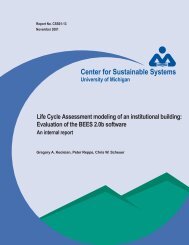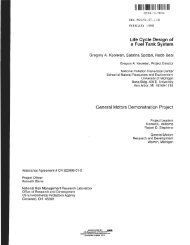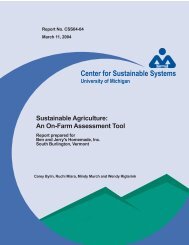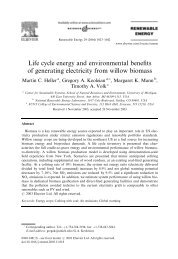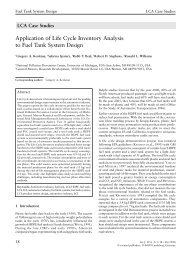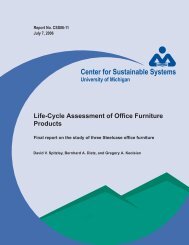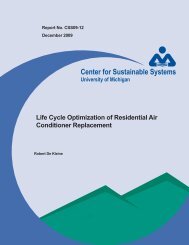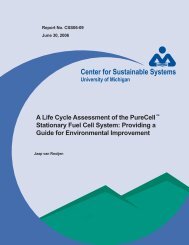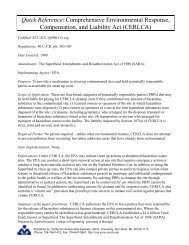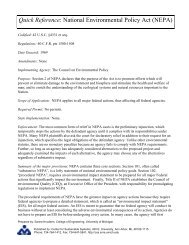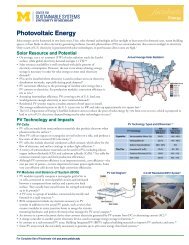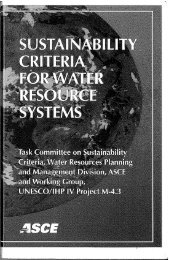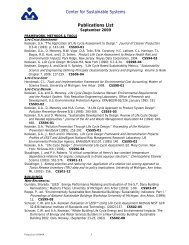Chapter 6 : Sanitary Sewer Overflows (SSOs)
Chapter 6 : Sanitary Sewer Overflows (SSOs)
Chapter 6 : Sanitary Sewer Overflows (SSOs)
Create successful ePaper yourself
Turn your PDF publications into a flip-book with our unique Google optimized e-Paper software.
Wet Weather Benchmarking Report<br />
<strong>Chapter</strong> 6: <strong>Sanitary</strong> <strong>Sewer</strong> <strong>Overflows</strong><br />
Michigan<br />
MI DEQ does allow blending at a limited number of facilities (less than five). At these facilities, the blending<br />
operates with an interim authorization and the facilities’ NPDES permits contain a requirement to eliminate<br />
the blending.<br />
Minnesota<br />
Blending is not allowed in any of MPCA’s wastewater treatment plant permits.<br />
Missouri<br />
MO DNR does allow blending at wastewater treatment plants, and does not consider blending to be a<br />
temporary solution. The U.S. EPA recently objected to the issuance of such permits.<br />
Montana<br />
MT DEQ does not allow blending in any of its wastewater treatment plant permits.<br />
Nevada<br />
Blending is not allowed in any of NV DEP’s wastewater treatment plant permits.<br />
New Hampshire: See EPA Region 1.<br />
New Jersey<br />
Blending is not allowed in any of NJDEP’s wastewater treatment plant permits.<br />
New York<br />
Wastewater treatment plant permits issued by NYSDEC contain provisions for the blending of treated<br />
wastewater with the mixture of storm water and untreated sewage, and this blending does not operate with an<br />
interim authorization or schedule for elimination.<br />
North Carolina<br />
Blending is not allowed in any of NC DENR’s wastewater treatment plant permits.<br />
North Dakota<br />
ND DoH does not allow blending in any of its wastewater treatment plant permits.<br />
Ohio<br />
Blending is not allowed in any of OH EPA’s permits.<br />
Oklahoma<br />
Blending is not allowed in any of OK DEQ’s wastewater treatment plant permits.<br />
Oregon<br />
Blending is not allowed in any of OR DEQ’s permits.<br />
Rhode Island<br />
Two of Rhode Island’s wastewater treatment plants that have combined sewer systems have both dry weather<br />
outfalls and wet weather outfalls. All discharges from the dry weather outfalls must meet secondary treatment<br />
6-18<br />
Last modified on May 5, 2010



